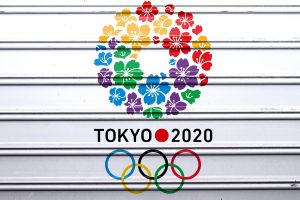The Tokyo Olympics will kick off on July 23, after being postponed for a year due to COVID-19. Despite the delay, the pandemic is still far from over — Tokyo is facing yet another rebound in cases and over 70 people associated with the Olympics (whether athletes or staffers) have tested positive for COVID-19. Tokyo remains in a state of emergency, and there will be no spectators at the Games, much less a wave of international tourism.
The Diplomat spoke to Noriko Hama, a professor at Doshisha Business School*, about the economic impact of the Tokyo Olympics and how COVID-19 has impacted Japan’s economy.
With tight restrictions on international travel still in place, and a hard cap on spectators, can the Tokyo Olympics still provide an economic boost for Japan?
Hardly. Many of the games have been switched to zero-spectator events. Emergency restrictions are in place for restaurant opening hours and the provision of alcohol. People are being discouraged from traveling to Tokyo across prefectural borders. Public viewing events have by and large been cancelled. All these factors will detract from whatever economic stimulus was hoped for.
Will the Olympics end up being a net positive or net negative for the Japanese economy?
Net negative. Costs are being incurred for putting the Games on while corresponding revenue flows will not be forthcoming given the zero-spectator measure. The above mentioned restrictions on eating out and cross-prefecture travel are likely to force even more businesses to close down. Under these circumstances I find it difficult to identify any net positives arising from the events.
Aside from the Olympics Games, which parts of Japan’s economy have been hardest-hit by the COVID-19 pandemic? Have there been signs of recovery in recent months?
The small and the weak have clearly been the hardest hit. Again, as I mentioned, eateries and other small retailers are facing great difficulties. So are wholesalers. In the manufacturing sector second and third tier suppliers are finding their business greatly diminished. Gig workers are not working. If anything, the recent months have made the situation worse for all these people given the tightening of state of emergency restrictions.
What steps has the government taken to minimize the economic damage from COVID-19? Are there other proposals under consideration at the moment?
No new notable measures have been introduced. The government is too busy trying to convince the Japanese public that the Olympics are safe and wonderful. One appalling measure that they tried to launch was to get financial institutions to put pressure on the restaurants they do business with to comply with the no-drinks policy. Another idea they came up with was to order alcohol wholesalers to stop doing business with restaurants that do not follow the no-drinks provision. Both these “initiatives” met with rightly ferocious resistance and criticism. So much so that the government was very quickly forced into withdrawing the measures. A government that comes up with such intimidating and at the same time risible plans cannot possible be expected to do anything worthwhile in terms of COVID damage limitation.
Given the current economic situation, what is the potential for further economic reforms along the lines of “Abenomics”?
My alternative name for Abenomics is Ahonomics, the Aho of which means stupid, idiotic, bonkers etc. in Japanese. Ahonomics has been very harmful to the Japanese economy because it paid little or no heed to the weaker elements within the economy. Redistributive measures have been very conspicuous for their absence in the Ahonomics line up. This has not changed under current Prime Minister Yoshihide Suga. My alternative name for Suganomics is Sukanomics, the Suka of which means empty, void, useless, losing lottery ticket etc. in Japanese.
*Professor Hama’s bio updated.

































